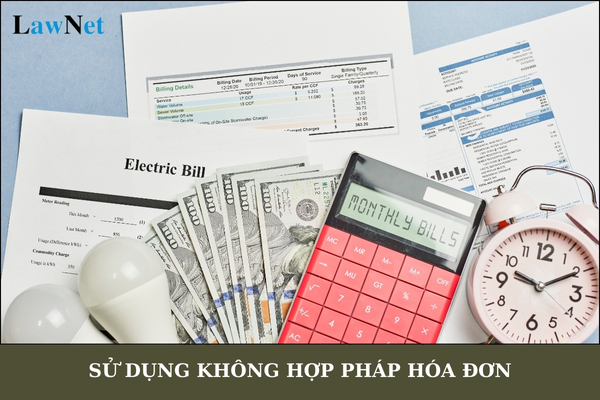Will the tax authorities publish information for the illegal use of invoices in Vietnam?
Will the tax authorities publish information for the illegal use of invoices in Vietnam?
Based on Point a, Clause 1, Article 29 of Decree 126/2020/ND-CP regulating the public disclosure of taxpayer information as follows:
Public Disclosure of Taxpayer Information
- The tax authority shall publish information about taxpayers in the following cases:
a) Tax evasion, aiding tax evasion, tax appropriation, violations of tax law then fleeing the business premises; issuing and using invoices illegally.
b) Not submitting tax declaration dossiers after 90 days from the expiry date of the tax declaration dossier submission as prescribed by current tax law.
c) Ceasing operations without completing procedures to terminate the tax code, not operating at the registered address.
d) Tax law violations by taxpayers affecting the rights and obligations of tax and other entities or individuals.
...
In accordance with the above regulation, in the case a business uses invoices illegally (illegal use of invoices), the tax authority will publish the information.

Will the tax authorities publish information for the illegal use of invoices in Vietnam? (Image from the Internet)
What are actions considered as the illegal use of invoices in Vietnam?
According to Clause 2, Article 4 of Decree 125/2020/ND-CP, acts of illegal use of invoices are as follows:
- Invoices, documents that do not fully record the mandatory contents as prescribed; invoices that are erased or amended against regulations;
- Fake invoices and documents (invoices, documents that have recorded economic transaction indicators but the purchase and sale of goods, services are not genuine in part or in whole); invoices reflecting values not corresponding to the actual transaction or creating fake invoices, counterfeit invoices;
- Invoices that have discrepancies in value or compulsory criteria between the links of the invoices;
- Invoices used for goods rotation during the transportation phase or using invoices from one goods or service to substantiate another goods or service;
- Using invoices, documents of another organization or individual (except for invoices issued by tax authorities and cases authorized to issue invoices) to legitimize purchased goods or services or sold goods or services;
- Invoices, documents that tax authorities or police or other competent agencies have concluded to be illegally used invoices, documents.
How much is the fine for illegal use of invoices in Vietnam?
As per Article 28 of Decree 125/2020/ND-CP, which governs sanctions for acts of illegal invoice use, it is stipulated as follows:
Sanctions for illegal Use of Invoices and Illegal Use of Invoices
- Fines ranging from 20,000,000 VND to 50,000,000 VND for acts of illegal use of invoices, or illegal use of invoices as prescribed in Article 4 of this Decree, except as stipulated at Point đ, Clause 1, Article 16 and Point d, Clause 1, Article 17 of this Decree.
- Compulsory remedial measures: Forcing the cancellation of used invoices.
Additionally, Clause 4, Article 7, of Decree 125/2020/ND-CP prescribes principles for determining the amount of fines as follows:
Forms of sanction, remedial measures, and principles for determining fine amounts for administrative violations of tax and invoices
...
- Principles for determining fine amounts
a) The fines stipulated in Articles 10, 11, 12, 13, 14, 15, Clauses 1 and 2 of Article 19 and Chapter III of this Decree are applicable to organizations.
For taxpayers who are households, business households, fines are applied like individuals.
b) When determining the fine for a taxpayer with both aggravating and mitigating circumstances, the aggravating circumstances shall be reduced according to the principle of discounting one aggravating circumstance for each mitigating circumstance.
c) Mitigating or aggravating circumstances used to set the fine range shall not be used when determining the specific fine amount according to Point d of this Clause.
d) When imposing fines, the specific fine for a violation of tax procedures, invoices, and behaviors as stated in Article 19 of this Decree is the average fine of the stipulated range. If there are mitigating circumstances, reduce each such circumstance by 10% of the average fine of the range, but the fine shall not be reduced below the minimum of the range; if there are aggravating circumstances, increase each such circumstance by 10% of the average fine of the range, but the fine shall not exceed the maximum of the range.
Based on these regulations, it can be seen that the penalty stipulated in Article 28 Decree 125/2020/ND-CP is for organizations.
Therefore, a business that uses invoices illegally will be fined from 20,000,000 VND to 50,000,000 VND and required to cancel the illegally used invoices, except in cases where illegal invoice use is meant to reduce the payable tax amount or increase refundable, exempted, or reduced tax amount.

